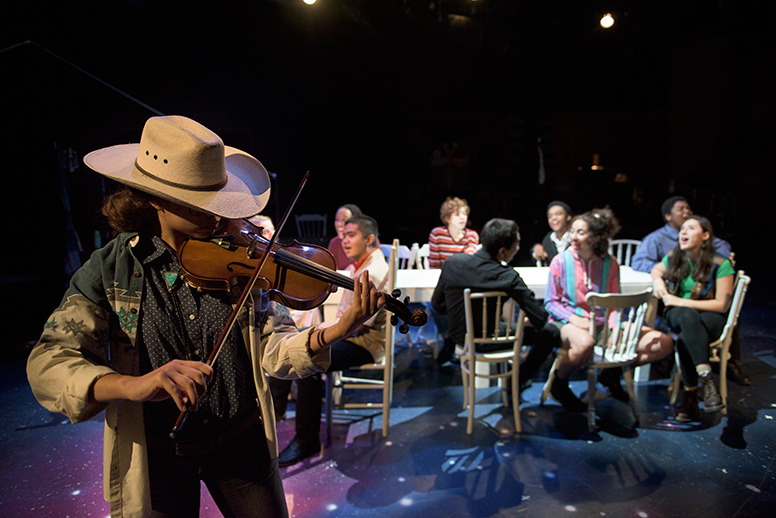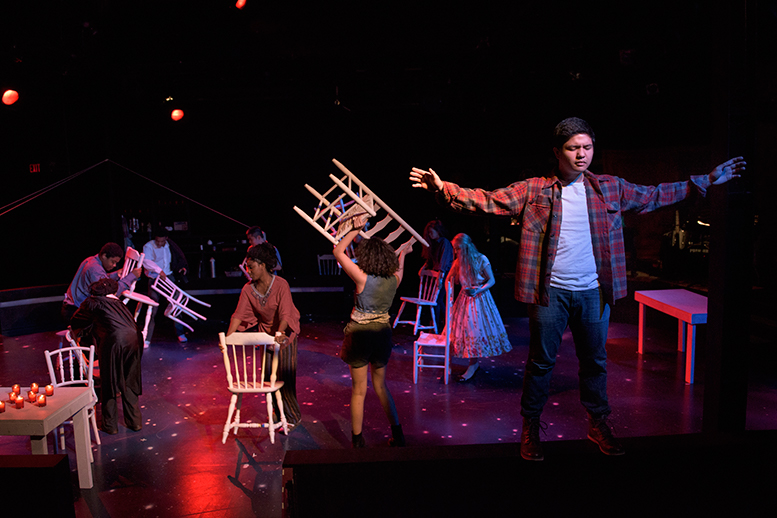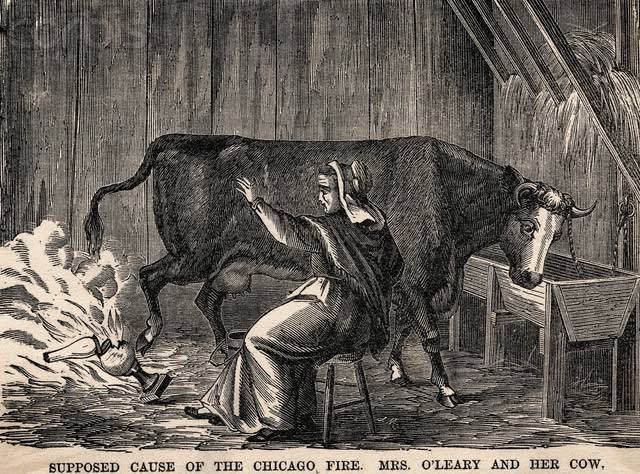Our big pink house on the hill overlooking Colorado Springs gave us shelter for only a few nights. It was three floors of bedrooms, couches, shaggy carpet and true sweetness. The backyard held a barbecue, a homemade planetarium and small animals that would wander through when they thought no wily humans were watching. Four of us adults accompanied twelve teenage students, who couldn’t help but assume archetypal reality television roles and film themselves with their smartphones, giving pretend testimonials and acting out scenarios. The whole group of them ran up and down the stairs, shouted over railings, danced to spontaneous beats — forming one large swirl of excitement and motion in and out of the doors and windows of the structure nestled in the foothills of the Southern Rocky Mountains.
There is no better feeling than exposing people you love to the Rocky Mountains for the first time. My Great Grandfather ran a dude ranch at the head of the Green in the Wind River Mountains for much of the twentieth century. He welcomed guests from far and wide to the GP Bar Ranch for horseback riding, hiking, eating and all the best parts of American mountain living. Much of that spirit lives on in my father, who raised me in northern Wyoming at the foot of the Bighorns. Whatever complicated relationship I may have with the geography and history of the land I grew up on — I cannot deny that the delight and awe in a newcomer’s eyes upon watching the Rockies rise out of the plains and their discovery of the openness of the landscape is the purest form of satisfaction. So much has been sacrificed on this land, but the beauty of the thing itself is unassailable.

So being able to lead two carloads of teenagers from Chicago on a research trip to Colorado Springs was one of the best parts of being the program coordinator for the Youth Ensemble of American Theater Company (ATC). Last July, I watched as my students picked out Jupiter in the night sky, traced the curve of Pike’s Peak with their fingers on the windowpanes and thrust themselves completely into the warmth of each other’s company.
The explicit goal of the research trip that the ATC Youth Ensemble takes every year is to follow in the footsteps of documentary playwrights to learn more about the play they produce each summer. This summer they portrayed characters in the documentary musical “This Beautiful City”, written by the Civilians. Subsequently, we traveled to Colorado Springs to conduct interviews and research the themes of the play in person. While we stress the importance of this academic goal, the grander goal of the trip is for the students, after beginning the work of stepping into personal opinions and experiences that are not their own, to be confronted with the full three-dimensional realness of those opinions and perspectives. Any actor can talk to you about the process of taking on a new character and presenting that character’s truth on stage, but documentary theater carries an extra weight. These stories are not simply based on the world-at-large — they come directly from the mouths of living, breathing humans. There is nothing more urgent than the living and the breathing.
Leading up to the trip, we spent weeks exploring The Civilians’ initial question in writing the play: “What does it mean to be Evangelical?” We read articles, spoke with people in our Chicago community and explored our own preconceived ideas. Once in Colorado Springs, we toured Colorado College, New Life Church, the Air Force Academy, Focus on the Family Welcome Center, Manitou Springs and Garden of the Gods. We spoke with activists, intellectuals, religious leaders, artists, skeptics, and believers. Subscribers to each of these different groups and spaces had a lot to say about the others. There were issues that divided them, but almost all of them talked about the distinguishing feature of their community being that it was organized into “bubbles” and “corners” of thought and purpose.
A sprawling city, Colorado Springs has a population of over 400,000 people, but it has the feel of a much smaller town. With space to spread out, the city is made up of subsets of communities that often like to ignore each other rather than intermingle. But this is really the story of so many urban areas in this country — even the country as a whole. Long, often discriminatory, histories of housing regulations and zoning have left most cities segregated more than sixty years after the rejection of “separate but equal.” In addition, the more we communicate online, the more access and ability we have to limit ourselves only to the people who share our particular world-view.

As the artistic mentor and administrator of the Youth Ensemble, I took on long-range and up-close views of the program and the students. Among the group of twelve students, more than eight schools and five neighborhoods were represented, spanning from North to South Chicago. That means that every time the students gathered, they participated in an act so few Chicagoans take part in on a regular basis. They crossed boundaries, learned about another corner of the city, asked each other to love, take risks and trust as theater artists and as people. Through these bold acts, they learned to believe in their own belonging and to reassure each other of theirs as well.
One of the first stops on the research trip was to meet with the Youth Rep Ensemble at the Colorado Springs Fine Arts Center. The twelve ATC students from Chicago combined with the thirty students from the Colorado Springs area to devise short advertisements for their respective cities. They were tasked with making tourism pitches that included the things you are not normally supposed to tout. The students split into groups and talked about crime, police brutality, teen suicide, religion, aspirations, and fears. When they were finished (after a mere 60 minutes), they performed eight original pieces presented in different theatrical styles such as musical, slam poetry, dance, improv — ranging from dramatic and sincere to bizarre and sublime. The gulf between Chicago and Colorado disappeared to form a new group founded on exploration and discovery.
“This Beautiful City” asks, “What does it mean to be Evangelical?” and American Theater Company asks, “What does it mean to be American?” The Evangelical experience is the American experience is the human experience — it can’t be summed up in one sentence or plain parallels. Each perspective is as unique as the many peaks of the Rocky Mountains. If we can learn anything from our histories and geographies, it is that the answers to our questions are many-layered and often contradictory — there are sharp edges as well as soft shadows. Sometimes the simplest solutions are the most difficult to realize: the best we can do is to reach out and hold fast to each other and to the things we know and don’t know.
Author
-

Grace Cannon is a theater artist and educator living in Big Horn, WY. She graduated from Vassar College with a major in American Culture and minor in German Studies. After volunteering for a year through AmeriCorps and studying in Berlin with a Fulbright Fellowship, Grace began working with American Theater Company eventually assistant directing under PJ Paparelli on the production of the original documentary play "The Project(s)." She has directed staged readings and in short play festivals in Chicago. Grace is a great believer in the power of documentary theater. Her passion for the form began when she formed No Fog West Theater Company to produce "The Laramie Project" and "Talking to Terrorists" in Wyoming, Utah, and Idaho. It has been solidified in her work in the New Play and Education departments of American Theater Company in Chicago.










